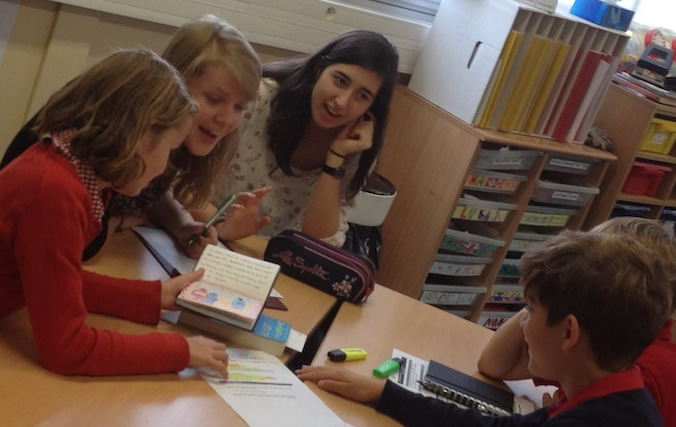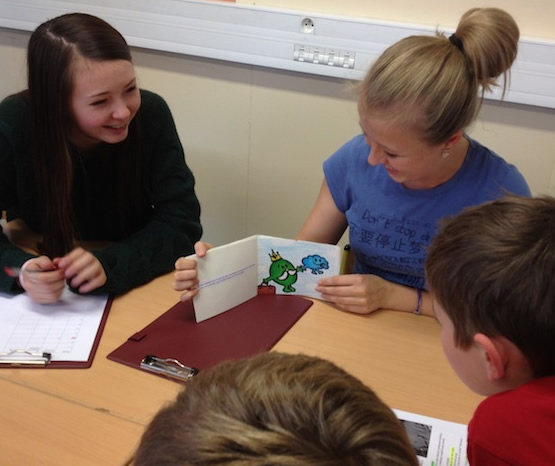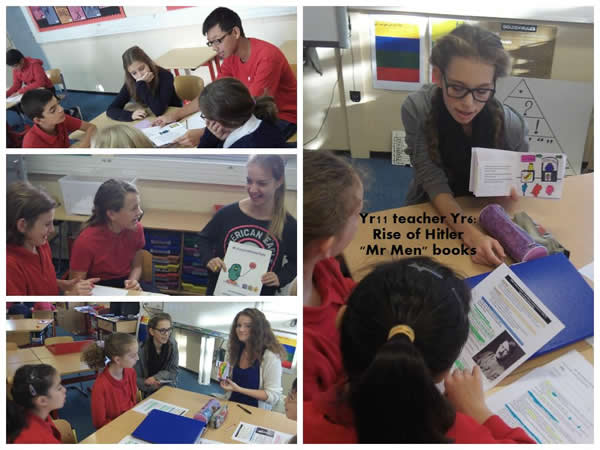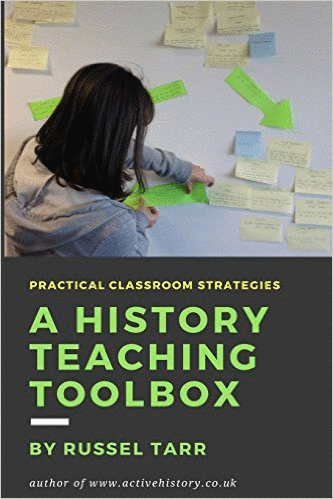A joint lesson between GCSE / Primary students.
 The following activity is a great way of rounding off or revising the Rise of Hitler with IGCSE students. They produce a 'Mr. Men' book about the topic and then read these to primary school / Year 7 students in a team challenge.
The following activity is a great way of rounding off or revising the Rise of Hitler with IGCSE students. They produce a 'Mr. Men' book about the topic and then read these to primary school / Year 7 students in a team challenge.
A. Prior to the Activity
Pre-activity preparation for Year 11
Prior to this activity, Year 11 students should have finished studying the Rise of Hitler. They should then spend classroom time discussing in pairs and groups how they could transform the narrative into a 'Mr. Men' story that younger students would be able to understand.
The following steps are a useful framework:
Brainstorm the key people involved (Hitler, Hindenburg, Goering, Van der Lubbe, Rohm...). Discuss their personalities / actions in relation to the topic. Bring up a picture of the Mr. Men characters on the board. Discuss which characters are the best match.
Brainstorm the key events that took place (Backstairs Intrigue, Reichstag Fire, Night of the Long Knives, Army's oath of loyalty...). Discuss how these could be turned into analogies that would fit into a Mr. Man format. At this point it is a good idea to watch one of the original Mr. Men cartoons (easily located on YouTube or purchasable online as a DVD) to get them thinking along the right lines.
Pre-activity preparation for Year 6
Year 6 students should have spent some time (at least an hour or two) working through the tasks and ideas in this preparatory worksheet. This provides them with essential background knowledge that will enable them to get the most out of the stories they will hear.
 B. The Activity
B. The Activity
Setting up the class
Year 6 will be divided into groups. These teams are lettered (e.g. A-G) for easy identification and a 'team leader' is nominated within each team.
On each table, place a piece of paper which will serve as a scorecard.
Year 11 form a 'queue' of storytellers. The person at the start of the queue should go to Team A, the second to Team B, and so on until each team has a storyteller with it. The remaining storytellers remain waiting in the queue.
The First Story
Each group listens to the story read to them by the storyteller.
Each team is then asked by the storyteller to guess what the various events / Mr. Men characters represented in real life.
The team GAINS a point for each correct statement they make ("We think that X in the story represents Y"). They LOSE a point for each incorrect guess.
To keep it simple, only the 'team leader' can officially make these statements (but they can discuss with the team first).
Using the scorecard on the table, the 'reader' keeps a log of how many points were gained and lost overall by each team.
[This short clip shows the stories being read to students]
Subsequent Stories
When a team has finished with their storyteller, the storyteller goes to the back of the queue of storytellers. The person at the front of the queue then joins the team and they get to hear this new story in the same format.
The process continues for the time available, or until all the stories have been read to all the groups.
Close the lesson by asking Year 6 which books they enjoyed most / which readers they found read the best. Scores for the Year 6 teams should be added up overnight and passed back to the class later.

These notes can be printed off as a .pdf file here.

© 1998-2026 Russel Tarr, ActiveHistory.co.uk Limited (Reg. 6111680)
1 Torrin Drive, Shrewsbury, Shropshire, SY3 6AW, England
Privacy Policy | Contact






